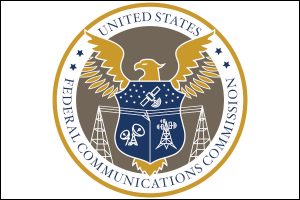Sohn’s Fight for FCC Seat Rehashes Net Neutrality and Section 230
 WASHINGTON — Public interest activist and Electronic Frontier Foundation board member Gigi Sohn, a notable attorney, was again nominated by the Biden White House to fill the fifth and open seat of the Federal Communications Commission (FCC). Democratic President Joe Biden openly renewed his support for Sohn, whose confirmation to serve on the commission has been stalled in the Senate for more than a year.
WASHINGTON — Public interest activist and Electronic Frontier Foundation board member Gigi Sohn, a notable attorney, was again nominated by the Biden White House to fill the fifth and open seat of the Federal Communications Commission (FCC). Democratic President Joe Biden openly renewed his support for Sohn, whose confirmation to serve on the commission has been stalled in the Senate for more than a year.
President Biden initially nominated Sohn to fill the vacant fifth seat in October 2021. According to Nextgov.com, Sohn’s first Senate confirmation was stalled when she faced unanimous opposition from the Senate GOP and unexpected scrutiny from some Democrats who saw issues with her public policy stances and previous public statements.
Jessica Rosenworcel, the chair of the Federal Communication Commission, issued a statement on Jan. 3, 2023, expressing her thanks to the Biden administration for doubling down on Sohn’s nomination while praising her.
“I’m proud of the work the commission has accomplished in the last two years,” Rosenworcel said, speaking broadly. “Closing the Homework Gap, broadband access and affordability, telehealth, mapping, and network security are top priorities, and we’ve acted accordingly. Gigi is a knowledgeable nominee with a long record of commitment to the issues before the FCC and I congratulate her on nomination as a commissioner at the agency. I look forward to the day we have a full complement of five commissioners.”
With a Senate that remains under the control of the Democrats, Sohn will likely be able to make it through the invasive process of political confirmation and vetting. But it wouldn’t be surprising if she faces unanimous Republican opposition and some questions from the left.
It’s high time that a fifth commissioner is named to the FCC, as chairwoman Rosenworcel hopes. The FCC has two Democrats and two Republicans, which means that it can’t do much because of the lack of a fifth commissioner. The adult entertainment industry has both direct and indirect interests at stake. One of these issues is that of net neutrality.
For those who need a reminder, net neutrality (or network neutrality) is the principle that internet service providers must treat all online communications and data throughput neutrally. This means ISPs must offer users and providers of online content consistent and competitive rates irrespective of the content or material shared over the web platform. This also applies to the type of equipment, the web address sources, the destination web addresses, or the methods of communication (e.g., email, instant message or text, video, audio, etc.).
There are two main arguments for and against net neutrality. Net neutrality supporters argue that it ensures that all internet traffic is treated equally, while net neutrality opponents argue that it could lead to higher prices, reduced competition, and fewer consumer choices.
Dozens of civil liberties groups, like the American Civil Liberties Union, maintain that net neutrality regulations ensure an open internet. The Free Speech Coalition, the adult industry trade association, has long been vocal in its support for net neutrality due to fears that telecoms and ISPs would “throttle” or limit the distribution of data and free-flowing internet traffic to adult entertainment websites.
Sohn is an outspoken supporter of net neutrality and minted her pedigree as such during her time as a top-level aide to Obama-era FCC chair Tom Wheeler. During his tenure, Wheeler was responsible for issuing the benchmark Open Internet Order that granted the U.S. net neutrality rights and reclassified the multi-billion-dollar ISPs as common carriers, similar to landline and cell phone providers. Sohn’s legacy can also be seen through her background and affiliations, including her board membership at the nonprofit Electronic Frontier Foundation.
There is an interconnectedness to the opposition by Republicans to Sohn’s nominations. During the Trump administration, Sohn was a vocal critic of the ex-president’s attempt to use the FCC’s interpretive power to promulgate rules on Section 230 of the Communications Decency Act of 1996. This attempt came from an executive order by Trump at the time, which was later revoked by Biden when he assumed power.
“The debate over whether Section 230 needs to be updated is an important one,” Sohn wrote in a 2020 column for Promarket. “But the proper venue for that debate is in Congress, not at the FCC, and not because of coercion from the Trump White House.”
Ajit Pai, the chair of the FCC under President Trump and a clear friend to the internet service providers, ended the Open Internet Order by adopting the Restoring Internet Freedom Order. In Sohn’s view, the FCC under Pai “abdicated its oversight of the broadband market based on Section 230’s language that set out a finding that “[t]he Internet and other interactive computer services have flourished, to the benefit of all Americans with a minimum of government regulation,” and a policy of ‘preserving a vibrant and competitive free market […] for the Internet, unfettered by federal or state regulation.’”
Sohn’s column stung deeply, indicating the FCC was acting hypocritically by forswearing their authority over regulating the acts of ISPs and simultaneously claiming that it has the authority to promulgate rules regarding the scope of Section 230, which would essentially upend the law’s safe harbor provisions reaffirmed by literal piles of U.S. case law.
As with net neutrality, Section 230 is a law that enables web platforms of all types, shapes, and sizes (especially adult sites) to freely operate and provide online sex workers, kinksters, porn consumers, and adult content creators with a relatively safe place for speech.













